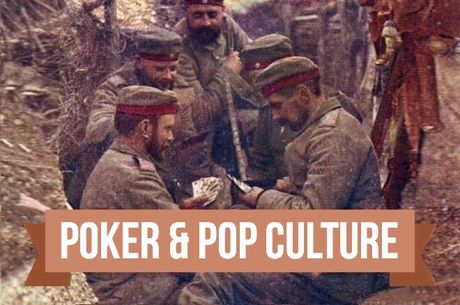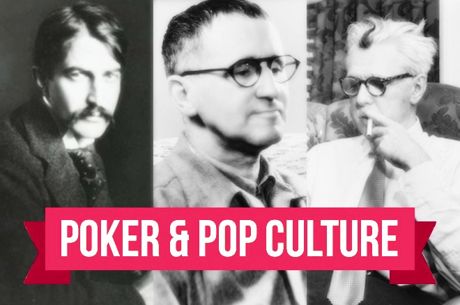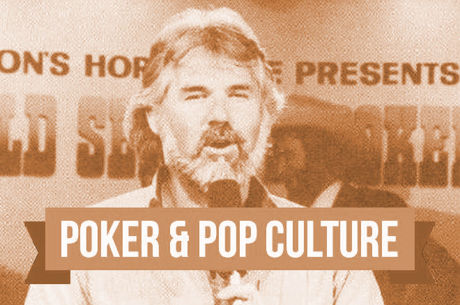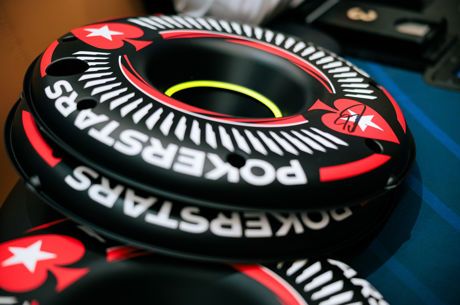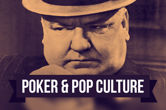Poker & Pop Culture: Harold Lloyd is Quite the Card as Dr. Jack
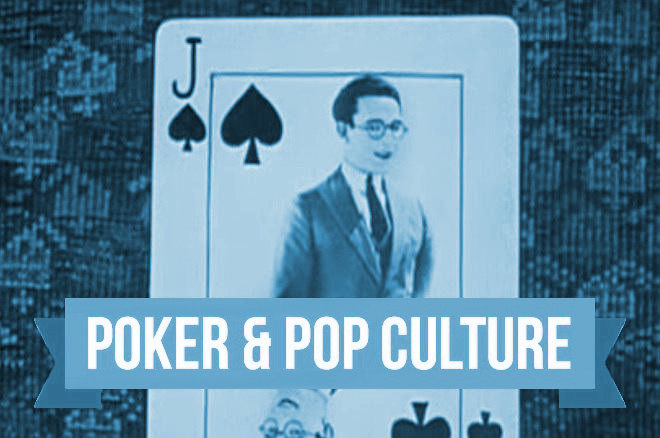
When it comes to poker turning up in popular culture, films have long been a favorite context in which to exploit the inherent drama and entertainment potentially produced by a game of cards.
Indeed, poker scenes started appearing on the silver screen not long after the introduction of cinema. We've already examined here one of the first "poker movies" ever produced, the 1912 silent short A Cure for Pokeritis. We've discussed other examples from the early 20th century, too, most recently the several instances of poker turning up in the comedies of W.C. Fields.
As we carry the story of poker and pop culture forward through the 20th century, there are dozens more examples of filmmakers in a variety of genres using poker as a means to create conflict, advance plots, flesh out characters, increase suspense and further promote themes.
Such examples attest not only to the growing popularity of poker, but also to how flexible poker can be as a narrative element. Poker scenes turn up in light-hearted, farcical comedies, in high-tension, dramatic thrillers, and in practically everything in between.
As a means to explore some of the ways poker can be used to support different kinds of cinematic storytelling, these next few columns will examine three poker scenes from otherwise "non-poker" films, each from different genres �� a slapstick comedy from the 1920s, a gritty crime drama from the 1930s, and a classic cowboy western from the 1940s.
A poker game occurring in the middle of a comedy often provides an opportunity for game-related one-liners and jokey exchanges. Of course, in a silent film the laughs have to be produced by other means, such as is demonstrated in the 1922 comedy Dr. Jack starring the great Harold Lloyd.
Lloyd starred in almost 200 films, his career spanning four decades. Like his contemporaries Charlie Chaplin and Buster Keaton, Lloyd often relied on physical comedy and in his films can be seen performing many of his own stunts �� including some dangerous ones. (He even once lost a thumb and finger doing one!)
Lloyd was a huge star, with his round eyeglasses every bit as iconic as Chaplin's mustache. As was the case for many film stars getting their start during the silent era, Lloyd's ability to convey a variety of exaggerated expressions helped make him a very effective leading man.
His best-known film (and probably his greatest) is Safety Last! from 1923, the one that includes the famous scene of him hanging from the minute-hand of a clock several stories above a city street. Thankfully for Lloyd, that stunt involved some camera magic and the use of a double. Such crazy action sequences were nonetheless a big attraction in his films, sometimes causing audiences to wonder "how did they do that?" amid their laughter.
Dr. Jack appeared just before Safety Last! and was much more about the sight gags than some of his other films. Lasting just under an hour, the film's romantic plot is mostly an excuse for Lloyd's character �� the mild-mannered, well-liked physician Dr. Jackson ("Jack" for short) �� to race through a series of funny sequences enabling Lloyd's special brand of physical comedy.
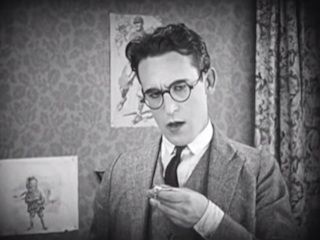
Some of the gags in Dr. Jack really are fantastic, capable of earning sincere grins almost a century later. Lloyd rides a cow backwards through a field, shows a monkey how to whittle a stick with a pen knife, and in a climactic scene fools a group of onlookers into believing he's in a fight with himself in disguise.
Halfway through the film comes a relatively lengthy poker scene, one that not only gives Lloyd another chance to engage in his typical antics, but also helps further establish his character as a doctor who whenever encountering patients (and situations) in need of help, is quick to provide unorthodox, creative "remedies."
By the time the scene arises, we've already gotten to know Dr. Jack through a half-dozen other rapidly-paced house calls, all of which involve him treating the ill in non-standard ways. Just to give one example, when a man compains of a sore foot, he "prescribes" that he play the saxophone, with the resulting toe-tapping helping his patient through his malady.
There's a larger narrative involving a character named the "Sick-Little-Well-Girl," played by Mildred Davis who starred opposite Lloyd in 15 of movies. In fact, they'd marry just a few months after Dr. Jack appeared, which perhaps explains the obvious chemistry between the pair here.
The Sick-Little-Well-Girl is being improperly treated by an unscrupulous Dr. von Saulsbourg who is obviously prolonging her treatment in order to line his pockets with her family's money. Dr. Jack first encounters both the girl and her doctor at a restaurant-hotel, which is where the first spark of love occurs between Dr. Jack and the Sick-Little-Well-Girl. That's also where the poker scene occurs, a prelude of sorts to Dr. Jack's successful rescue of the girl.
In the hotel lobby Dr. Jack encounters another young woman who asks for his help. Her father is upstairs playing in an illegal poker game, and she asks him to "get my daddy away" from the game since "he'll lose his paycheck... he always does."
Dr. Jack agrees, and after going upstairs finds four men playing five-card draw. Soon he notices a box containing several decks of cards, and he quickly comes up with a way to break up the game.
Procuring aces from a number of the decks, Dr. Jack surreptitiously supplies each of the four players with cards needed for all of them to make four of a kind. Unsurprisingly, the betting finds all four players putting everything they have in the middle �� including the young woman's father putting in his paycheck.
The showdown then leads to pandemonium. Take a look:
It's a funny situation and scene, and if you think about it the hand of poker is quite complicated, especially for a silent film. It's presented especially well, though, with the exaggerated "poker faces" of the players (not to mention Lloyd's nods and winks) adding to the humor.
We might also note how poker is being presented as a kind of "illness" here in need of a cure �� very similar to the message of A Cure for Pokeritis from a decade before.
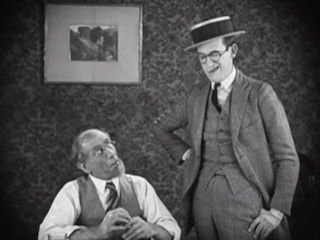
It's immediately after this scene Dr. Jack gets recruited by a friend of the Sick-Little-Well-Girl's family to help her. The fellow refers to Dr. von Saulsbourg as a "four-flusher," employing a poker term in order to characterize the doctor as a phony. A "four-flusher" is a bluffer, someone who is pretending to have a flush while in actuality being one card shy of having one.
The second half of the film then finds Dr. Jack successfully "calling" Dr. von Saulsbourg's bluff, winning the love of the girl in the process.
We knew this would happen, though, as the girl's maid predicted it would with a deck of cards. Pointing to the jack of spades, the maid tells her the "ol' Jack-of-Spades man" is about to ride into her life, presumably to save her. Just as Dr. Jack finds a roundabout way to "cure" the situation involving the girl's father about to gamble away his paycheck, he similarly has to show a lot of ingenuity in order to "treat" the circumstance afflicting the Sick-Little-Well-Girl.
Next week we'll look at a much different use of poker in the movies, this time in a crime drama starring Humphrey Bogart. There, too, is poker used to underscore a larger thematic point, though more seriously than is the case in Dr. Jack.
From the forthcoming "Poker & Pop Culture: Telling the Story of America's Favorite Card Game." Martin Harris teaches a course in "Poker in American Film and Culture" in the American Studies program at UNC-Charlotte.

